Life
Sign up for our newsletter
We summarize the week's scientific breakthroughs every Thursday.
-
 Neuroscience
NeuroscienceOur taste in music may age out of harmony
Age-related hearing loss may be more than just the highest notes. The brain may also lose the ability to tell consonance from dissonance, a new study shows.
-
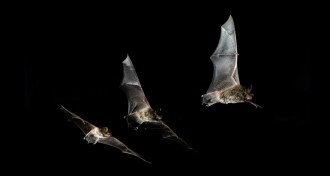 Animals
AnimalsFor bats, simple traffic patterns limit collisions
Humans aren’t the only ones who follow traffic rules. Bats do it too, researchers report.
-
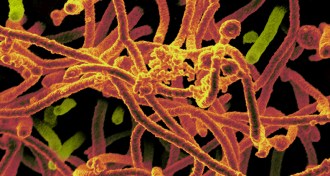 Genetics
GeneticsEbola virus not mutating as quickly as thought
The virus causing the current Ebola epidemic in West Africa is not evolving as quickly as some scientists had suggested.
-
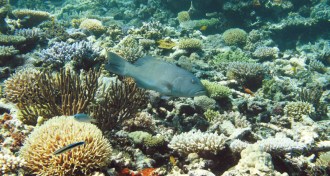 Life
LifeNo-fishing scheme in Great Barrier Reef succeeds with valuable fishes
Coral trout are thriving in marine protected areas in the Great Barrier Reef, but the no-take zones are having a smaller effect on other reef residents, a new 10-year report card shows.
By Susan Milius -
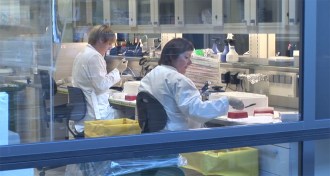 Genetics
GeneticsIceland lays bare its genomes
A detailed genetic portrait of the Icelandic population is helping scientists to identify the genetic underpinnings of disease.
-
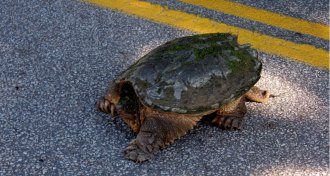 Animals
Animals‘If you build it they will come’ fails for turtle crossings
Turtles and snakes barely used an ecopassage built to make their movements safer. Scientists blame poor fencing that failed to keep them off the roadway.
-
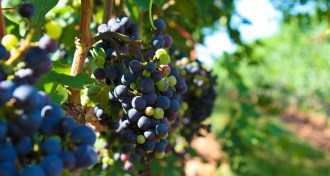 Life
LifeA vineyard’s soil influences the microbiome of a grapevine
Vineyard soil microbes end up on grapes, leaves and flowers, study finds.
-
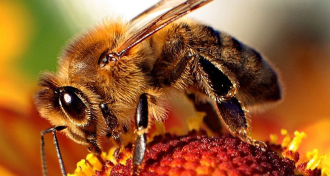 Environment
EnvironmentManganese turns honeybees into bumbling foragers
Ingesting low doses of the heavy metal manganese disrupts honeybee foraging, a new experiment suggests.
-
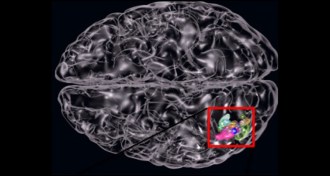 Neuroscience
NeuroscienceThe brain sees words, even nonsense ones, as pictures
Once we learn a word, our brain sees the string of letters as a picture, even if the word isn't a real one.
-
 Health & Medicine
Health & MedicineClean-up gene gone awry can cause Lou Gehrig’s disease
Scientists have linked mutations on a gene involved in inflammation and cell cleanup to ALS, or Lou Gehrig’s disease.
-
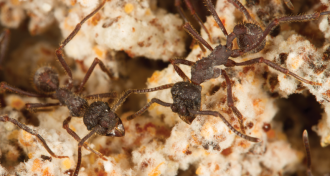 Animals
AnimalsNeandertal of ant farmers grows modern food
The most old-fashioned fungus-growing ant yet discovered grows a startlingly new-fangled crop.
By Susan Milius -
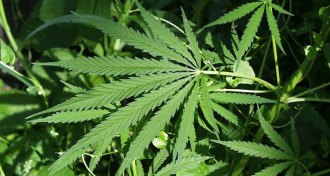 Chemistry
ChemistryToday’s pot is more potent, less therapeutic
The medicinal qualities of marijuana may be up in smoke thanks to years of cross-breeding plants for a better buzz.
By Beth Mole